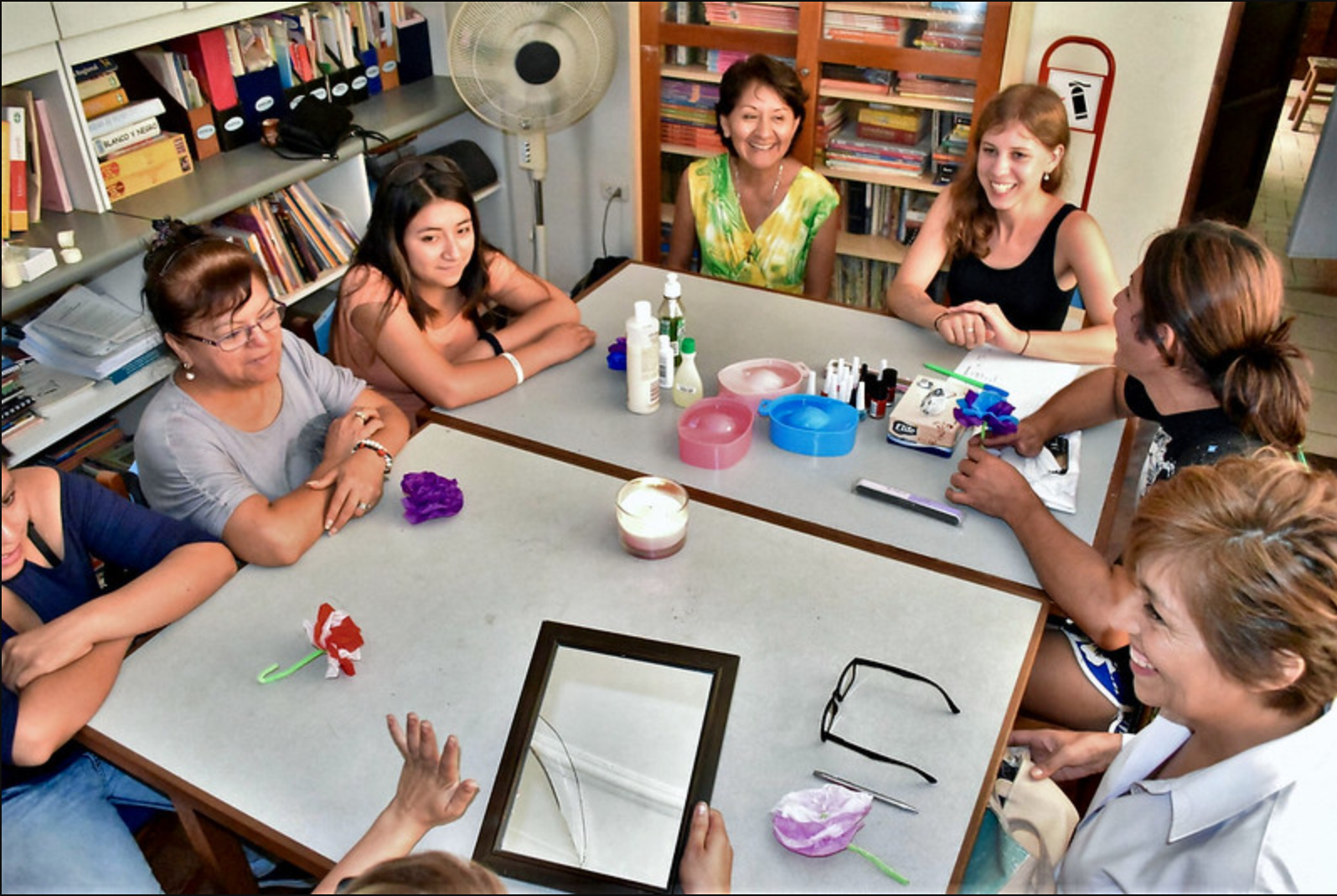By BGR Staff
A BGR project in Peru, with Peruvian partner Asociación Grupo de Trabajo Redes, is dedicated to providing marginalized women with access to vocational educational training, information about their labor rights, and opportunities to find dignified work.
Across the globe, women who work as domestic laborers fall into an unregulated “gray market” where jobs may require them to work long hours, for inadequate wages, often under exploitative conditions. Many are also vulnerable to physical abuse or sexual harassment or violence by their employers. In Peru, women who live in the pueblos jóvenes (shantytowns) surrounding Lima are often excluded from the mainstream job market by racism, classism, and limited access to education. Many of these women work in gray-market domestic jobs like housecleaning, child care, and elder care.
BGR partner Asociación Grupo de Trabajo Redes (AGTR) works to change the lives of these women through its project, “Conditional Capabilities: Providing Marginalized Women Access to Vocational Educational Training, Labor Rights, and Dignified Work.” Working from AGTR’s community center, La Casa de Panchita, or from La Van de Panchita, a mobile training unit, specialists educate women about their labor rights, provide training in vocational and interpersonal skills, offer counseling and job-search assistance, and host a variety of workshops and educational opportunities. AGTR also is home to a public-education initiative to raise awareness of the rights of domestic workers and hiring practices among employers and the general public, as well as resources and advocacy for child laborers.
Last year, through a BGR grant, 2,197 women participated in an introductory educational session from AGTR including information on the Peruvian Law of Domestic Workers (Law 27986); 466 of these women joined additional in-depth training sessions on topics including job interview preparation, the legal rights of domestic workers, and adapting to the cultural expectations of their Lima employers—more than 70 percent of Lima’s domestic workers are internal migrants from the Andes and the Amazon region. Women who participated in AGTR training received instruction manuals, a cookbook containing recipes for healthy meals, and a stipend to cover their transportation to and from the community center.
At year’s end, 262 women had obtained new jobs with decent working conditions and fair wages; 156 of these were employed in full-time, permanent positions. An additional 138 women maintained or improved their working conditions through AGTR’s counseling and mediation services.
One of AGTR’s training participants, Verónica, spoke to the value of the community created by AGTR. “After taking part in AGTR’s and La Casa de Panchita’s workshops, I feel more comfortable with myself,” she said. “I have met other women working in domestic service in Lima, and that has given me more confidence. I felt understood there, because other domestic workers also went through the same difficulties I had to face. I have learned to value my work experience and the knowledge I have acquired in recent years, to organize myself better in my work, and to know how to adapt to the customs of my new employers.”
Karina immigrated to Lima from Venezuela because of economic need. “At La Casa de Panchita I felt included, like I belong, and I felt comfortable here,” she said. “In my situation, as a migrant still trying to rebuild my life in a new country, this was very important for me. This place and the people here are very warm, and one can feel it from the very moment they open the door.”
Through her participation in AGTR’s trainings, Victoria found a new confidence in herself. “Here I learned that I have rights; before, I knew nothing about rights,” she said. “Also, I have learned to value domestic work, not to feel less than others, that one should not be ashamed for being a domestic worker. I had never thought about how many years I have been working and how much I have learned from those years working in domestic service.”
AGTR estimates that each of the 2,197 women directly participating in trainings and other services shares what she has learned with five peers, raising the total estimated number of beneficiaries to more than 10,000.
This article is based on reporting by AGTR staff.





